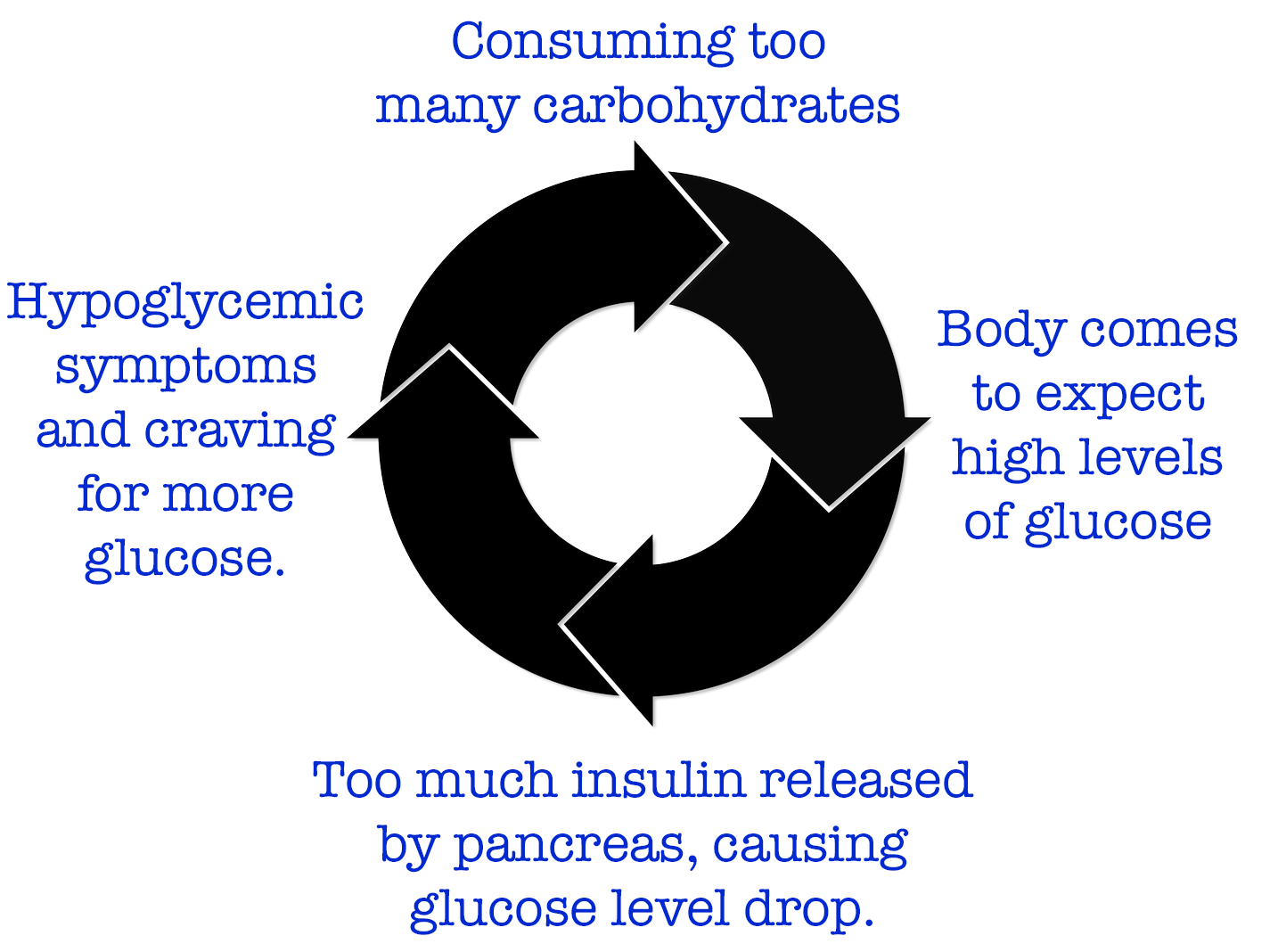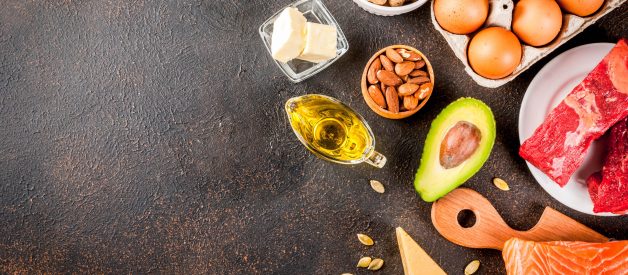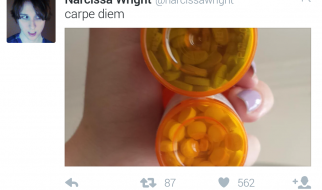Feeling hungry and irritable often? There?s a chance you?re on a carbohydrate-driven rollercoaster
 Photo by Rimma_Bondarenko.
Photo by Rimma_Bondarenko.
Most people can relate to being ?hangry??that singular combination of hungry and angry. But if it happens to you frequently, paired with other more frantic symptoms, then it could be something more serious.
Some people can have low blood sugar without being diabetic. It?s called reactive hypoglycemia.
I have been the child on a road trip, fighting with my sister, screaming that I?m going to be sick unless we stop to eat, just hours after we already stopped to eat. I have been the girlfriend who is too shaky and stressed to pick a restaurant, that just gives up and eats an entire sleeve of crackers for dinner instead. I have quit mid-cooking dinner to go lie down because I felt so weak and exhausted, abandoning the dinner entirely.
All of these situations have one thing in common: they were the consequence of having low blood sugar.
Low blood sugar is not something you can ignore. A common treatment for diabetics is to eat something sugary for an instant boost. But if you have reactive hypoglycemia, that?s just a quick fix?as is, say, eating a sleeve of crackers. It will make you feel better in the short term but will compound your problems over time.
What I have is called ?non-diabetic reactive hypoglycemia?, which basically means that my blood sugar drops, which make me feel sick a few hours after eating.
When I was a child, I had a lot of blood tests to try to see what was going on with my blood sugar. The doctors concluded through blood tests that I wasn?t diabetic, but we never got any real answers as to why I was feeling these hypoglycemic symptoms. I?m not a diabetic.
My parents still knew something was going wrong with me: I would complain of headaches and shakiness and would fall asleep for long periods of time, even though I never had an appetite. They remedied it with just making sure I had food every few hours, regardless of whether I felt hungry.
As an adult, I wanted to know more, so I went to the doctor where I was able to find out if I legitimately had something wrong with my blood sugar. They ordered me a mixed-meal tolerance test (MMTT). For this test, you don?t eat, and your blood glucose levels are monitored before and after you are given a beverage that contains a mix of carbohydrate, protein, and fat during a period of a few hours. It?s similar to the more common glucose tolerance test (GTT) where you fast and are then given a glucose-only solution, followed by blood glucose testing.
The results of the MMTT confirmed the diagnosis that I already suspected: non-diabetic, reactive hypoglycemia.
What is Non-Diabetic Hypoglycemia?
I started reading up to understand more about non-diabetic hypoglycemia to figure out why I was always so hungry when everyone else seemed fine. In order to understand what it is, we first have to understand what it is not ? basically, how a ?normal? person?s body works vs. mine.
A non-diabetic or non-hypoglycemic person?s blood sugar levels rise and fall, but always stay in the healthy range, typically less than 100 mg/dl before eating and around 140 mg/dl an hour or so after eating.
So why is mine dropping into a low blood sugar zone? Non-diabetic reactive hypoglycemia means that your blood sugar levels are on a bit of a roller coaster?spiking when you eat carbohydrate-laden meals and then crashing soon after.
The Pancreas, insulin, and glucagon
The pancreas is an amazing little organ which aids the process of breaking down food by releasing enzymes. Along with that, it?s in charge of stabilizing our blood sugar by releasing insulin ? or the opposite hormone glucagon ? in the bloodstream. A well-functioning pancreas keeps our blood sugar in a healthy range by releasing those two hormones.
Insulin is released from the pancreas in response to ingesting food. This is the major hormone responsible for lowering blood sugar levels
However, there are four major hormones responsible for raising blood sugar levels:
- Glucagon (a hormone released by pancreas)
- Cortisol (stress hormone)
- Growth hormone
- Adrenaline (last resort when the other three don?t work)
As a non-diabetic hypoglycemic, my pancreas is releasing too much insulin, which drops my blood sugar way down past the 70 mg/dl mark and starts to give me the negative symptoms.
A diabetic has problems with the pancreas not releasing enough insulin, which is why many diabetics either have an insulin pump or have to inject it, and/or take steps to prevent too much glucose entering the bloodstream in the first place.
Hypoglycemia can also have other root causes: too much alcohol, medications, illnesses, hormonal imbalances, or even tumors of the pancreas. If you suspect you are experiencing hypoglycemia frequently, the way to be sure it so ask your doctor for an MMTT. (I was not able to find a way to order this test from a do-it-yourself lab company.)
Symptoms of hypoglycemia
Common symptoms of low blood sugar, regardless of the cause, include:
- Brain fog
- Anxiety
- Nausea
- Fatigue
- Shakiness
- Weakness
- Irritability
- Exhaustion
- Headaches
- Fear
- Moodiness
- Anger
- Trouble speaking
- Depression
- Crying
- More serious symptoms, including fainting, confusion, psychosis, and seizures
In hypoglycemia, our bodies are trying to raise our blood sugar levels. When there is no carbohydrate coming in, or not enough glucagon being released, then it resorts to cortisol (stress hormone) and adrenaline.
The burst of adrenaline explains why hypoglycemia might feel shaky, or have panic or fear if we don?t get food quickly enough. The brain cannot work properly because brain cells need glucose (sugar) as metabolic fuel. We might experience mental fog, confusion, mood swings, or depression.
If you?re feeling some of these symptoms and eating foods makes you feel better, you might have some type of hypoglycemia.
Hypoglycemia linked to diabetes
I was always told that hypoglycemia is the exact opposite of diabetes, since instead of needing insulin, my body is actually producing too much of it, and so I thought no way in a million years would I have diabetes.
It really shocked me to read that hypoglycemia can be a precursor to diabetes or a sign of pre-diabetes. Hypoglycemia is a warning sign and early symptom of insulin resistance, which often progresses into full-blown diabetes if you?re not careful.
Reactive hypoglycemia isn?t immediately life-threatening, but it can become a much bigger medical issue if not handled properly.
Common Treatments
Medical professionals advise diabetics and non-diabetics with hypoglycemia to keep a piece of candy on them at all times to quickly boost their blood sugar levels, which effectively boosts the blood sugar, making the person feel more stable. They may also prescribe sugar pills to take to stabilize the low blood sugar symptoms.
How medical websites tell you to manage non-diabetic hypoglycemia:
- Eat frequent, small meals throughout the day
- Cut back on food and drinks with caffeine
- Never skip meals.
- Eat slow-digesting carbs (oatmeal, beans, whole wheat bread)
This medical website suggests that for immediate treatment of low blood sugar, make sure that you eat or drink 15 grams of sugar carbohydrates (juice, glucose tablets, or hard candy) to boost your blood glucose levels.
The problem with all of this clinical advice is that it is just a quick fix and it?s not actually curing the true cause behind your ups and downs of blood sugar.
In actuality, it?s the spiking of the blood sugar with carbs and sugar that is causing the equal and opposite reaction of the blood sugar dropping.
Fixing the Root of the Problem
So, if the root of the problem is too much insulin, and insulin is produced to counteract the high blood sugar, then we must stop the rise of insulin. To do this, you need to reduce your intake of carbohydrates.
The cycle of hypoglycemia
 Illustration by the Better Humans editorial staff.
Illustration by the Better Humans editorial staff.
Eating carbs every few hours is basically teaching the body to expect them for energy. Instead of relying on constantly ingested refined carbs and sugars, we have to give it food that helps it produce more glucagon, such as proteins and fats.
If our new goal is to manage our insulin and reverse the risk of diabetes by merely increasing the glucagon level, how do we do that?
A combination of three things worked for me.
1. Keto Diet
The ketogenic diet is basically a low-carb, no sugar, high protein, and high-fat diet. I wasn?t too excited about the whole low-carb rule of the diet, because I figured it might make me get low blood sugar.
A week into the keto diet, I felt like a disaster. I was always hungry, moody, shaky, and feeling hypoglycemic to the max. I wanted to quit the diet because I feel so groggy and sick.
What confounded me was that everywhere I looked on the internet about the Keto diet, people writing their praise and their testimonies about how great they feel on the diet, so clear-headed and healthy.
That?s when I found out what I was doing wrong with keto and how it can get tricky with hypoglycemia.
Common mistakes during transitioning to the ketogenic diet
- Not eating complete meals ? not eating enough proteins, fats, or vegetables (healthy carbs)
- Not doing it consistently ? having too many snacks or cheats
- Doing it long enough to experience true results ? usually takes on average three weeks
- Not having enough electrolytes ? sodium, magnesium, and potassium
Without the quick boost of sugar from carbs, I felt like I was never going to get out of the low blood sugar range.
The body needs time to adjust to building new mechanisms because it is shifting from using sugar as a fuel to using fat as a fuel, so give it a few weeks before giving up!
I?ve learned through Dr. Eric Berg?s YouTube channel that the best diet for hypoglycemics is high protein, high fat, and veggies, which just so happens to be the same guidelines as the ketogenic diet.
I?ve been on the keto diet for three weeks now. I?ve amped it up to the high-protein ketogenic diet from the standard keto diet, which is increasing your protein from 20% to 35%, which has made all of the difference.
So instead of boosting the sugars temporarily with sugar, we need to start getting your body to start regulating the blood sugar with glycogen on its own.
What to do on the keto diet as a hypoglycemic:
- Eat enough protein to trigger glycogen.
- Stay away from refined carbs and sugars.
- Transition into eating only healthy carbs (vegetables, nuts, seeds, fruits).
- Eat enough fat to sustain yourself.
- Eat fewer meals and snacks, aim for only 3 meals a day.
The body is remarkable. It can create sugar out of fat and protein, and protein actually triggers glucagon!
So instead of giving your body the quick fix of sugar or carbs that it desperately craves, give it a few eggs or steak and lots of veggies and wait for it to kick in, to stop the vicious cycle of hypoglycemia.
Once you have been able to get your body used to produce glucagon on its own, the less need you will feel for carbs and sugar to balance you.
Then, you will see that your blood sugar won?t spike, causing the blood sugar drop, and eventually, you can completely heal and stabilize blood sugar levels for good.
A little thing to remember here is to stay away from hidden sugars and carbs that will turn into sugar, causing the roller coaster of ups and downs in the blood sugar. These include:
- Grains: bread, pancakes, granola bars, cereal, oatmeal
- Starches: potatoes, rice, pasta
- Yogurt: even plain yogurt has plenty of hidden sugars
- Honey
- Wine and alcohol: turns into sugar in the body
- Juice (has more sugar than soda)
2. Intermittent Fasting
It seems counterproductive to tell a hypoglycemic to not eat frequently?I know I was thinking, this is backward, my blood sugar is going to crash and I?m going to feel sick the whole day!
The truth is, contrary to what medical websites advise that hypoglycemics should be eating small and frequent meals, the truth is that every time we eat something, anything, whether it is one chip or an entire meal, insulin is going to be released from the pancreas.
That is not good when a hypoglycemic is already producing excess amounts of insulin.
The goal is to try to minimize the number of times we eat in a day, ideally going from five or six small meals to just two or even one meal a day. That?s essentially intermittent fasting: setting aside a significant portion of your day (much of it while sleeping) when you do not eat at all.
You should, however, proceed slowly. The biggest mistake people make starting intermittent fasting is jumping in too quickly.
You have to train your body slowly, allowing it enough time to get used to it. You don?t want to shock the body; ease into it.
The whole point of this is that your body will learn to stabilize itself, with as little interference from us as possible.
Benefits of intermittent fasting include that it:
- Lowers insulin levels.
- Raises human growth hormone: may increase as much as 5-fold, which accelerate fat burning and muscle gain.
- Helps in a cellular ?waste removal? process called autophagy.
- Protect you against diabetes.
- Protects against aging, by reducing oxidative damage and inflammation in the body.
- Lowers blood pressure and cholesterol.
- Boosts brain power?aids in growing new nerve cells.
Now where to begin?
Let?s uncomplicate intermittent fasting, by breaking it down into one plain and simple rule- Listen to your body!
If you started out like me eating three full meals a day plus two snacks between them, then you have to cut back on one of those eating times for a while until your body adjusts, then remove another.
Uncomplicate intermittent fasting
- Eat when you are really hungry. Real hunger will feel like painful stomach pains, making you feel lightheaded and weak.
- Don?t eat when you?re not hungry.
- Don?t eat out of slight hunger or boredom eating
- Break the fast with healthy food, and not anything that will raise the blood sugar too much (avoid carbs, especially high-sugar carbs like fruit and grains).
- Start gradually by only cutting only snacks, then meals. Work your way into it gradually.
Tips to maintain intermittent fasting
- You can have as much water, supplements, and tea and coffee (without sugar) as you?d like during fasting.
- Be prepared for when you do get hungry, to have a healthy meal on hand to prevent you from making bad food decisions.
- Keep yourself busy so you?re not sitting around thinking about how you are fasting.
3. Get the Right Nutrients
It?s important for everyone to have the right nutrients in their diets, regardless if you?re hypoglycemic or trying the keto diet or intermittent fasting.
Be sure to get enough of these nutrients in particular:
- B vitamins: (helps regulate insulin) can be found in eggs, meat, dairy, fish, seeds, and most vegetables
- Potassium: can be found in leafy greens, fish, and avocados
- Magnesium: can be found in fatty fish, nuts, and seeds
Specific to hypoglycemics, some supplements are needed to give extra help to stabilize your insulin levels and your blood sugar.
The best supplements for hypoglycemics
- Sea salt or Himalayan salt ? sodium (helps you retain water for proper hydration)
- Berberine ? an ancient herb that controls blood sugar can be found in pill form
- Nutritional yeast ? full of B vitamins to help regulate insulin
It is important that if you feel like you?re not eating the foods that have enough of these minerals and enzymes that you supplement them.
If you are eating healthy enough, you should be getting most of your needs met just through proper nutrition.
On the Road to Being Cured
Once you?ve been eating less often, and eating better foods along with enough exercise, you?ll start to see the benefits of managing your insulin excess and low blood sugar levels.
Benefits of fixing hypoglycemia
- Less cortisol in the body (less stress on the nervous system).
- Weight loss due to less cortisol and less calorie intake.
- Higher concentration and better brain function.
- Not feeling the negative symptom related to blood sugar crashes.
- More freedom regarding food, no more being a slave to your diet.
- Takes you out of the prediabetic range.
- Less anxiety and depression (due to the release of unwanted adrenaline and cortisol).
After three weeks of doing a strict ketogenic diet, I can feel my body not crashing between meals, I have more energy, and I?m a lot less moody.
I have also begun to introduce intermittent fasting by not eating after dinner at 8 pm until noon the next day, leaving a 16-hour timeframe of fasting. I still drink as many cups of coffee in the morning as I want without feeling any blood sugar crash.
Since I?ve gone from eating three full meals a day, plus two snacks in between, to only eating two meals per day, I feel so much better and more stable physically and emotionally. I?m finally able to go longer without food with little to no symptoms of hypoglycemia.
Breaking the vicious hypoglycemia cycle has really been a game changer for me. It?s remarkable how proper nutrition can actually change your body, and remove the warning signs of being prediabetic.
I have never really monitored my blood sugar and base my results on how I can feel I am getting better.
I am no longer craving carbs as I did before when my blood sugar was constantly in a roller coaster cycle of ups and downs, and have lost 7 lbs over the course of these three weeks.
It?s been a win-win situation for me.


